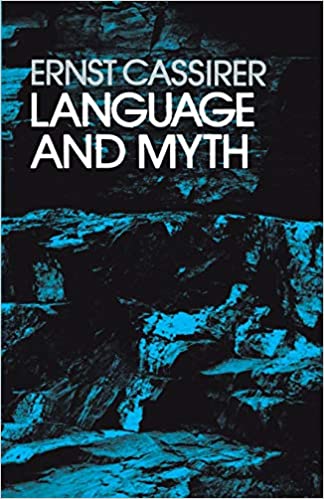Newly released
This book is new and will be uploaded as soon as it becomes available to us and if we secure the necessary publishing rights.

Language and Myth
(0)
Author:
Ernst CassirerNumber Of Reads:
87
Language:
English
Category:
Social sciencesSection:
Pages:
133
Quality:
excellent
Views:
1232
Quate
Review
Save
Share
Book Description
In this study Cassirer analyzes the non-rational thought processes that go to make up culture. He demonstrates that beneath both language & myth there lies an unconscious "grammar" of experience, whose categories & canons aren't those of logical thought. He shows that this prelogical "logic" is not merely an undeveloped state of rationality, but something basically different, & that this archaic mode of thought still has enormous Power over even our most rigorous thought, in language, poetry & myth. The author analyzes such seemingly diverse (yet related) phenomena as the metaphysics of the Bhagavat Gita, the Melanesian concept of Mana, the Naturphilosophie of Schelling, modern poetry, Ancient Egyptian religion & symbolic logic. He covers a vast range of material that is all too often neglected in studies of human thought.
These six essays are of great interest to the student of philosophy or the philosophy of science, the historian, or the anthropologist. They are also timely for students of literature, what with the enormous emphasis placed upon "myth" in modern literary speculation. This book isn't superficial speculation by a dabbler, but a penetrating study by one of the most profound & sensitive philosophic minds of our time.
Ernst Cassirer
Ernst Cassirer (1874 - 1945) was a German philosopher and historian of philosophy who belonged to the so-called Marburg School of "neo-Kantian philosophy". He is best known as the most prominent commentator of Kantian critical philosophy in the twentieth century. He left Germany in 1933, and died in New York. Among his most famous works are: “Essence and Function” (1910), “Freedom and Form” (1916), “Philosophy of Symbolic Forms” (1923 - 1929), “Myth and the State” (1942), “Symbol, Myth and Culture” (1979), “Language and Myth.” (1925).
Book Currently Unavailable
This book is currently unavailable for publication. We obtained it under a Creative Commons license, but the author or publisher has not granted permission to publish it.
Rate Now
5 Stars
4 Stars
3 Stars
2 Stars
1 Stars
Quotes
Top Rated
Latest
Quate
Be the first to leave a quote and earn 10 points
instead of 3
Comments
Be the first to leave a comment and earn 5 points
instead of 3